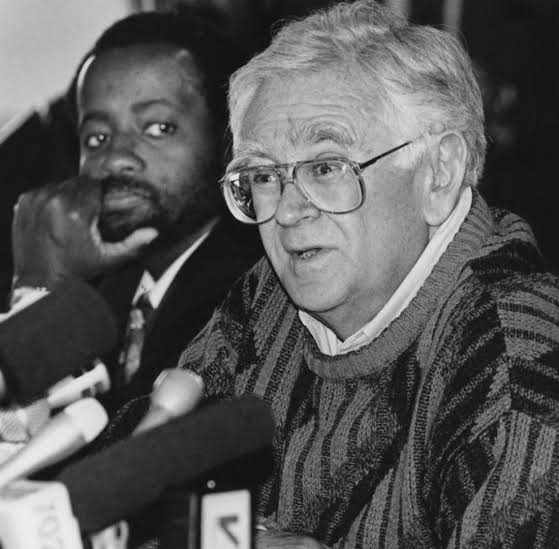By Johnathan Paoli
The SA Communist Party has reaffirmed its decision to run independently in the 2026 local elections as a move to strengthen the Tripartite Alliance to ensure it completes the national democratic revolution (NDR).
The SACP held the 30th Joe Slovo Commemoration at the Avalon Cemetery in Soweto on Monday, honouring three decades since the passing of its former general secretary and uMkhonto weSizwe military wing chief of staff.
Current SG Solly Mapaila highlighted the contributions of Slovo, and said his legacy called for an intensification of the liberation project to address the ongoing inequality and exploitation in the country.
“The political landscape necessitates that in order to defend the NDR, confront capital and bring back the power of the people, the SACP needs to strengthen its allies by standing on its own,” Mapaila said.
He outlined the party’s commitment to addressing South Africa’s pressing socio-economic challenges while strengthening its role in the alliance, underscoring the inseparable bond between national liberation and class struggle.
Mapaila identified capitalism as the root cause of inequality, poverty gender-based violence and crime.
He criticised the slow pace of transformation since the end of apartheid, noting that the ownership of wealth remained concentrated in the hands of a small, predominantly white male elite.
The SG warned against the influence of neoliberal policies and imperialist forces, which had captured the political economy.
“Economic exclusion of the majority persists and the working class bears the brunt of this systemic inequality. We cannot strengthen imperialism or allow the political class to detach from the realities of our people,” he said.
The SACP’s mission was to continue representing the working class, creating new strategies for grassroots mobilisation and building stronger, self-reliant communities to challenge systemic inequality.
“This is not to weaken the African National Congress, but to defend the NDR and confront capital directly,” Mapaila said.
Advocating for self-reliance, Mapaila stressed the need for grassroots action and called on branches to create programmes that improved community conditions and generated employment opportunities.
Mapaila emphasised the importance of legislation like the National Health Insurance Act and the Basic Education Laws Amendment Act, condemning opposition parties for obstructing their implementation.
Congress of South African Trade Union’s 2nd Deputy President Duncan Luvuno similarly criticised the state of the alliance and the Government of National Unity.
“The people in the GNU are anti-workers and defending such a status quo is a disservice to Joe Slovo’s legacy. We must reconfigure the alliance and reclaim leadership in government. History will judge us if we fail to preserve unity and lose power to the descendants of the previous regime,” he said at the commemoration.
Youth Communist League national secretary Mzwandile Thakhudi called for a complete overhaul of the country’s socio-economic system and condemned the reliance on neoliberal policies, which he said betrayed the vision of Joe Slovo.
Criticising the Democratic Alliance and the GNU, Thakhudi labelled their actions as anti-poor and called for Basic Education Minister Siviwe Gwarube’s removal for neglecting the education sector.
“The time for empty promises is over. We demand radical, systemic change,” Thakhudi declared.
Meanwhile, President Cyril Ramaphosa urged the alliance partners to draw inspiration from Slovo’s legacy, praising the country’s progress since 1994, while acknowledging that remnants of inequality, corruption and injustice remain.
Ramaphosa highlighted Slovo’s principles of universal justice and sacrifice, noting his pivotal role in shaping the democratic transition.
The president said there was a need to innovate and engage in meaningful dialogue to navigate the present challenges and political landscape.
“Separating the alliance weakens the NDR. If we walk separately, then we must accept that state power is going to be diffused and will no longer reside in the hands of the mass democratic movement,” he said.
INSIDE POLITICS

